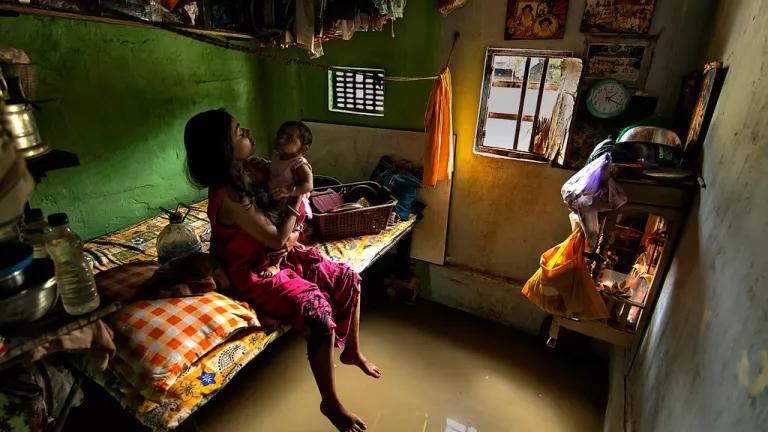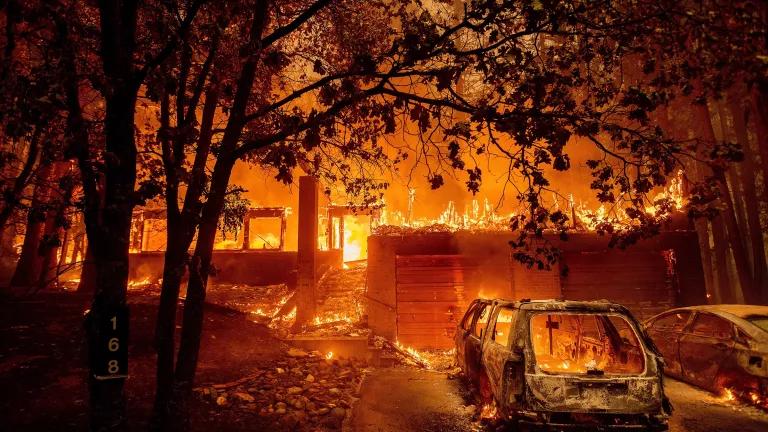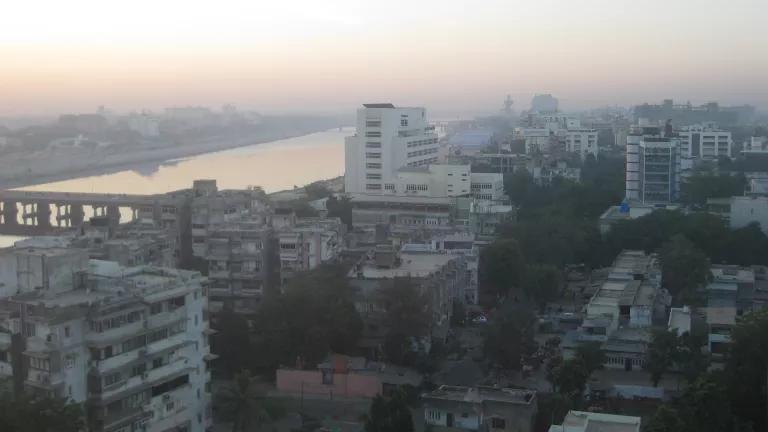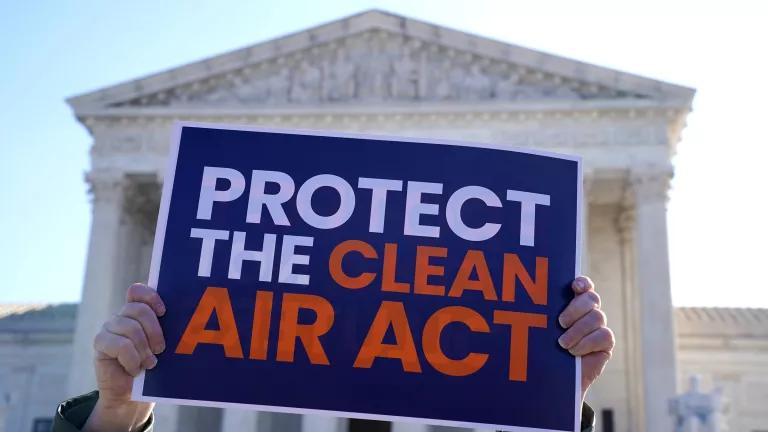The Inequitable Health & Economic Burdens of Climate Change
Climate action can prevent suffering and advance global health equity.

Dangerous flooding from extreme rainfall is worsening in Kolkata and other cities in India, driven by climate warming and a more erratic monsoon season.
Climate change is causing calamitous harm to the world's poor, but coordinated action can prevent suffering and advance global health equity.
The health damages linked to climate change are more severe than ever as pollution from burning fossil fuels accumulates in the atmosphere. This month alone we’ve seen vivid examples of devastating climate change impacts around the world, including more than 300 people dead in South Africa flooding, millions of people in in India exposed to extreme heat, and widespread landslides and floods in the Philippines that have killed at least 48 people. While it’s too early to quantify the role of climate change in worsening the severity of these events, scientists warn that these types of climate-sensitive health hazards (and more) are increasingly more likely to occur with continued burning of coal, oil, and gas.
A commentary article I wrote, published today in One Earth, explores this connection and how climate change is deepening global health disparities by sickening, injuring, and killing people who are the most vulnerable and marginalized among us such as the very young, seniors, women, those already struggling with chronic disease, and those lacking access to affordable healthcare. It also sheds light on the underappreciated financial burden of climate change-related health problems, which threaten to overwhelm global healthcare systems and disproportionately harm the economically vulnerable in the coming years.
It’s well known and documented that climate change consequences—such as sea level rise, higher temperatures, and both extreme rainfall and terrible drought—are not equitably distributed. But what’s perhaps less appreciated is the extent to which physical and mental health problems from climate threats—like wildfires, heatwaves, floods, and infectious disease outbreaks—are particularly dangerous for the most vulnerable among us due to those very social and environmental health factors that simultaneously magnify exposure risks and burden people with numerous obstacles to staying healthy. Under-resourced populations are more likely to lack access to health insurance and affordable preventative (primary) healthcare services, and suffer from high rates of chronic diseases that can be aggravated by climate change stressors.
My commentary article explores the growing health burden of climate-sensitive hazards that is accompanied by a staggering but underappreciated healthcare burden. Climate change threats already are driving a growing demand for costly medical treatment in emergency rooms and hospitals worldwide, a toll that’s expected to rise in the coming years, according to the recent United Nations IPCC (Intergovernmental Panel on Climate Change) report on Impacts, Vulnerability, and Adaptation. Climate hazards also are linked to trauma, anxiety, and other mental health problems, a greater demand for prescription medications and outpatient care, and lost wages due to overnight hospital stays, further contributing to financial stressors.
To date, there has been scant research and policy attention to the financial costs of medical treatment increasingly required to help people recover from the health problems caused by climate-sensitive events, but that may be changing. Last week, for example, the U.S. Office of Management and Budget released an assessment of economic risks posed by climate change to the U.S. federal government. That document singled out the healthcare burden on Medicare and Medicaid patients as a significant but understudied risk area. To better assess that threat, researchers and policymakers need better access to improved public health data systems that can track climate-related health problems and financial costs.
While the health and economic havoc caused by climate change is worrying, my commentary article recommends three types of solutions to help prevent suffering and improve people’s lives here and now:
1. Reducing Climate-Sensitive Health Risks by Tackling the Root Causes of Climate Change
Rapidly cutting fossil fuel combustion (coal, oil, and gas) is vital to slowing the rate of global temperature increase and risks to the public. Reducing climate-changing pollution (a challenge summarized as “mitigation”) can also drastically reduce dangerous air pollution, which is linked to 3.6 million annual premature deaths concentrated in developing countries.
2. Reducing Health Vulnerabilities Through Adaptation
Much more must be done in the near-term to enhance adaptation to climate threats and protect vulnerable groups from unavoidable climate-sensitive hazards. Sufficient adaptation to the scale of climate change threats forecast by scientists will require far more investment and more coordination in the years to come. Adaptation can take many forms, including improving the reach and utility of health-based early warning systems, emergency cooling shelters during heatwaves, and multilingual health risk communication to the public. Promoting health and wellness by encouraging active transportation (walking and cycling, for example), promoting healthier diets, and broadening access to nature can advance health equity and reduce the prevalence of chronic health conditions that heighten vulnerability to climate-sensitive health harms.
3. Reducing Economic Insecurity Through Social Investments
Policymakers must acknowledge and work to mitigate the financial toll of health burdens aggravated by climate change. Those actions could include reducing income inequality, improving global healthcare access and affordability, and broadening economic opportunity to help to reduce inequities and ensure that patients are not unduly burdened by out-of-pocket healthcare costs. Efforts to ensure more climate-friendly healthcare systems should also address financial stressors from climate-sensitive health problems that disproportionately burden marginalized people.
As climate change risks continue to pile up, it’s important to remember that this problem is not some distant, abstract threat; it’s here and it’s causing terrible and costly suffering, especially for the most vulnerable among us. Reckoning with the climate problem by transitioning away from fossil fuels towards cleaner, renewable energy sources and strengthening adaptive capacity can help to secure a safer and more equitable future, especially for people most at risk of harm.



